Losing weight is often seen as a simple equation of eating less and moving more, but anyone who has tried to shed pounds knows it’s far more complex. Weight loss involves physical, emotional, and mental challenges that can make success feel elusive.
However, with a well-rounded strategy, clear goals, and consistent effort, lasting weight loss is achievable.
In this guide, we’ll explore common obstacles, practical strategies, and long-term approaches to overcoming the challenges of weight loss and achieve weight loss goals.
Understanding the Challenges of Weight Loss
Weight loss is not just about physical effort—it’s deeply intertwined with emotional, psychological, and environmental factors.
Excess weight has significant health implications, necessitating effective strategies to manage and reduce it. Understanding these challenges is the first step toward overcoming them.
Common Obstacles to Weight Loss
Lack of Motivation: Weight loss journeys often start with enthusiasm but can lose momentum over time, especially without visible progress.
Poor Nutrition Choices: Over-reliance on processed and sugary foods can sabotage efforts, even with exercise.
Insufficient Physical Activity: A sedentary lifestyle or lack of enjoyable exercise routines can slow down progress.
Emotional Barriers: Stress, anxiety, and low self-esteem often lead to emotional eating or a lack of commitment.
Unrealistic Expectations: Setting unrealistic weight loss goals can result in frustration and disappointment. Unrealistic expectations can derail a weight loss journey, making it crucial to set achievable goals and seek community support to overcome these challenges.
Lack of Support: Without a support system, maintaining motivation becomes challenging.
Recognizing these barriers can help individuals develop targeted strategies to address them effectively.

Setting Yourself Up for Success
Making a Commitment to Weight Loss
Successful weight loss begins with a commitment to change. Here are practical steps to build a strong foundation:
Write Down Your Goals: Clarify why you want to lose weight—better health, more energy, increased confidence—and keep these goals visible.
Set Realistic Targets: Aim for 1-2 pounds per week to ensure sustainable weight loss.
Develop a Plan: Include balanced nutrition, exercise, and self-care routines in your daily schedule.
Find a Support System: Whether it’s a workout buddy, a weight loss group, or a family member, having accountability helps.
Celebrate Milestones: Acknowledge and reward small successes to stay motivated.
Consistency is key, and every small step contributes to long-term results. To maintain weight loss, it’s essential to continue monitoring progress and making necessary lifestyle adjustments.
Nutrition Strategies for Weight Loss
Focusing on Nutrient-Dense and Quality Foods
Nutrition is the cornerstone of weight loss. Instead of restrictive dieting, focus on sustainable and balanced eating habits:
Prioritize Whole Foods: Include fruits, vegetables, lean proteins, whole grains, and healthy fats in your diet. Incorporating healthy foods ensures you create a calorie deficit while preserving muscle.
Plan Meals in Advance: Preparing meals and snacks prevents unhealthy, impulsive food choices.
Limit Processed Foods: Reduce your intake of sugary drinks, fast food, and pre-packaged snacks.
Stay Hydrated: Drinking at least 8 cups of water daily supports metabolism and reduces overeating.
Include Healthy Snacks: Nuts, seeds, and fruits can keep hunger at bay between meals.
Balanced nutrition isn’t about perfection—it’s about consistency and making better choices most of the time.

Healthy Eating Habits
Developing Consistent and Balanced Eating Patterns
Developing healthy eating habits is crucial for achieving and maintaining a healthy weight. A balanced diet that includes a variety of whole foods can help provide the necessary nutrients for optimal health. Here are some tips for developing consistent and balanced eating patterns:
Eat a Variety of Whole Foods: Incorporate a diverse range of fruits, vegetables, whole grains, lean proteins, and healthy fats into your diet. This ensures you get a broad spectrum of nutrients essential for your body.
Color Your Plate: Aim to include a rainbow of colors on your plate. Different colors often represent different nutrients, so a colorful plate can help you get a well-rounded diet.
Incorporate Healthy Fats: Don’t shy away from fats. Healthy fats found in nuts, seeds, avocados, and olive oil are vital for your body and can help keep you satiated.
Choose Whole Grains: Opt for whole grains like brown rice, quinoa, and whole wheat bread instead of refined grains. Whole grains are more nutritious and can help keep you full longer.
Limit Processed Foods: Processed and packaged foods often contain unhealthy ingredients like added sugars and unhealthy fats. Try to limit these and focus on whole, unprocessed foods.
Stay Hydrated: Drinking plenty of water throughout the day is essential. It helps with digestion, keeps your metabolism running smoothly, and can prevent overeating.
Regular Meals and Snacks: Eating regular meals and healthy snacks can help keep your energy levels stable and prevent overeating later in the day.
By developing these healthy eating habits, you can support your weight loss efforts and maintain a healthy weight over time. Remember, consistency is key, and making small, sustainable changes can lead to significant long-term results.
Effective Exercise for Losing Weight
Finding Enjoyable and Sustainable Physical Activity
Exercise shouldn’t feel like a chore. Even modest weight loss can lead to significant health benefits, such as improvements in blood pressure, cholesterol, and blood sugar levels, which in turn may reduce the risk of chronic diseases. The key is finding activities that you enjoy and can stick with long-term:
Explore Different Activities: Walking, swimming, cycling, yoga, or dancing—find what you love.
Incorporate Movement into Daily Life: Take the stairs, walk during breaks, or do home workouts.
Set a Weekly Goal: Aim for at least 150 minutes of moderate-intensity exercise per week.
Add Strength Training: Building muscle boosts metabolism and improves body composition.
Find an Accountability Partner: Working out with a friend or joining group classes can keep you motivated.
Exercise should be enjoyable, not exhausting. Start slowly, build momentum, and focus on consistency.

Lifestyle Changes for a Healthy Weight
Managing Stress and Sleep
Lifestyle habits like stress management and sleep play a critical role in weight loss:
Practice Stress Reduction: Techniques like meditation, deep breathing, or yoga can lower stress hormones like cortisol.
Prioritize Sleep: Aim for 7-9 hours of quality sleep each night to regulate hunger hormones (ghrelin and leptin).
Create a Bedtime Routine: Limit screen time and caffeine before sleep to improve sleep quality.
Take Breaks: Avoid burnout by incorporating short breaks and self-care into your day.
A healthy lifestyle extends beyond diet and exercise—it includes mental well-being and self-care. Incorporating healthy meals into your routine can also support balanced nutrition and overall well-being.
Overcoming Emotional Barriers to Lose Weight
Building Motivation and Confidence
Weight loss isn’t just physical—it’s deeply tied to your mental and emotional health:
Challenge Negative Self-Talk: Replace self-criticism with encouraging affirmations.
Celebrate Every Win: Every pound lost, every healthy meal, and every workout counts.
Seek Support: Join online forums, weight loss communities, or seek counseling if needed.
Practice Self-Compassion: Be kind to yourself during setbacks—they’re part of the journey.
Building confidence takes time, but small daily efforts lead to lasting results. Structured weight loss programs can provide the necessary support to overcome emotional barriers and achieve sustained weight loss.
Maintaining Progress and Avoiding Plateaus
Continually Monitoring Progress and Adjusting Strategies
Weight loss plateaus are normal but can be overcome with these strategies:
Track Progress Regularly: Keep a journal for weight, measurements, and fitness milestones.
Adjust Your Routine: Change up your exercise program or tweak your calorie intake.
Avoid Monotony: Try new workouts or recipes to keep things interesting.
Seek Professional Help: A coach or nutritionist can help break through plateaus.
Celebrate Progress: Reflect on how far you’ve come and stay positive.
Incorporating a healthy snack into your daily routine can also support balanced nutrition and help avoid plateaus.
Seeking Support and Resources
Utilizing Community, Professional, and Online Resources
Seeking support and resources can be an important part of achieving and maintaining a healthy weight. Here are some ways to utilize community, professional, and online resources:
Join a Weight Loss Support Group: Connecting with others who are on a similar journey can provide motivation and accountability. Whether in-person or online, support groups can offer encouragement and share valuable tips.
Consult with a Registered Dietitian or Healthcare Professional: A professional can help you develop a personalized weight loss plan tailored to your specific needs and goals. They can provide expert advice on nutrition and exercise.
Use Online Resources: There are numerous weight loss apps and websites that can help you track your progress, plan meals, and stay motivated. These tools can be a great way to keep yourself accountable.
Seek Out Community Resources: Local gyms, fitness classes, and community centers often offer programs and activities that can help you stay active and engaged. Participating in these can make exercise more enjoyable and social.
Work with a Personal Trainer or Fitness Coach: A trainer can help you develop a workout routine that meets your needs and goals. They can also provide motivation and ensure you are exercising safely and effectively.
Join Online Communities and Forums: Online communities can be a great source of support and information. Connecting with others who are working towards similar goals can provide encouragement and share experiences.
By seeking out support and resources, you can stay motivated and accountable on your weight loss journey. Remember, you don’t have to do it alone—there are many resources available to help you achieve your weight loss goals.
Transform Your Weight Loss Journey with Mixx
Losing weight can be a complex and challenging process, but having the right support system can make all the difference. At Mixx, we provide real prescriptions from licensed physicians to help individuals achieve their weight loss goals safely and effectively—all from the comfort of home.
Our approach is centered around affordable GLP-1 weight loss therapy, utilizing compounded Semaglutide and GLP-1/GIP injections to support sustainable weight loss. Whether you’re struggling with motivation, overcoming a plateau, or seeking professional guidance, Mixx offers customized treatment plans tailored to your unique health needs.
Why Choose Mixx
Mixx prioritizes expert care, convenience, and affordability to ensure a seamless weight loss experience.
$0 Consultation – No hidden fees, with unlimited check-ins from real, licensed physicians.
Custom Dosing Plans – Personalized treatment for optimized results.
Convenient, Fast Delivery – Prescriptions delivered directly to your doorstep.
Licensed in 41 States – Accessible weight loss solutions for patients across the country.
Board-Certified Providers – Professional guidance at every stage of your journey.
How It Works
Getting started with Mixx is simple and stress-free.
Step 1: Book Your Free Consultation
No consultation fees or hidden charges. Meet with a licensed physician to discuss your health goals and determine if GLP-1 therapy is right for you.
Step 2: Meet With Your Provider
A board-certified provider will create a customized weight loss plan tailored to your individual needs. Unlimited check-ins ensure ongoing medical support throughout your journey.
Step 3: Receive Your Prescription at Home
Your treatment plan is delivered directly to your doorstep, eliminating the need for in-person visits.
Mixx is committed to making weight loss more accessible, convenient, and effective. By providing high-quality medical guidance and prescription-based treatments, we help individuals overcome weight loss challenges and achieve long-term success.
Achieving Long-Term Weight Loss Success
Sustaining Lifestyle Changes and Avoiding Relapse
Maintaining weight loss requires long-term commitment:
Make Healthy Habits Permanent: Eating well and exercising should be part of your routine, not temporary fixes.
Stay Accountable: Regular check-ins with friends, coaches, or self-monitoring tools help.
Manage Triggers: Identify emotional or environmental triggers that lead to poor choices.
Embrace Consistency: Progress isn’t linear—stay consistent even during setbacks.
Celebrate Success: Reward yourself for maintaining your weight loss goals.

Frequently Asked Questions (FAQs)
1. What are your weight loss challenges?
Common challenges include motivation, emotional eating, lack of time, and unrealistic goals.
2. What is the biggest obstacle to losing weight?
Sustaining motivation and consistency over time is often the biggest challenge.
3. Why is weight loss so challenging?
Weight loss is influenced by metabolism, hormones, emotions, and lifestyle factors, making it a multifaceted challenge.
4. How do I stay motivated during weight loss?
Set small goals, celebrate milestones, find support, and focus on long-term benefits.
Confronting the Challenges of Losing Weight Conclusion
Losing weight is not an easy journey—it’s filled with obstacles, both physical and emotional. However, by setting realistic goals, embracing balanced nutrition, staying active, managing stress, and seeking support, long-term weight loss is entirely achievable.
Remember, weight loss is not about perfection—it’s about progress. Each healthy choice, no matter how small, brings you closer to your goals. Celebrate your victories, learn from setbacks, and keep moving forward on your path to a healthier, happier you.

